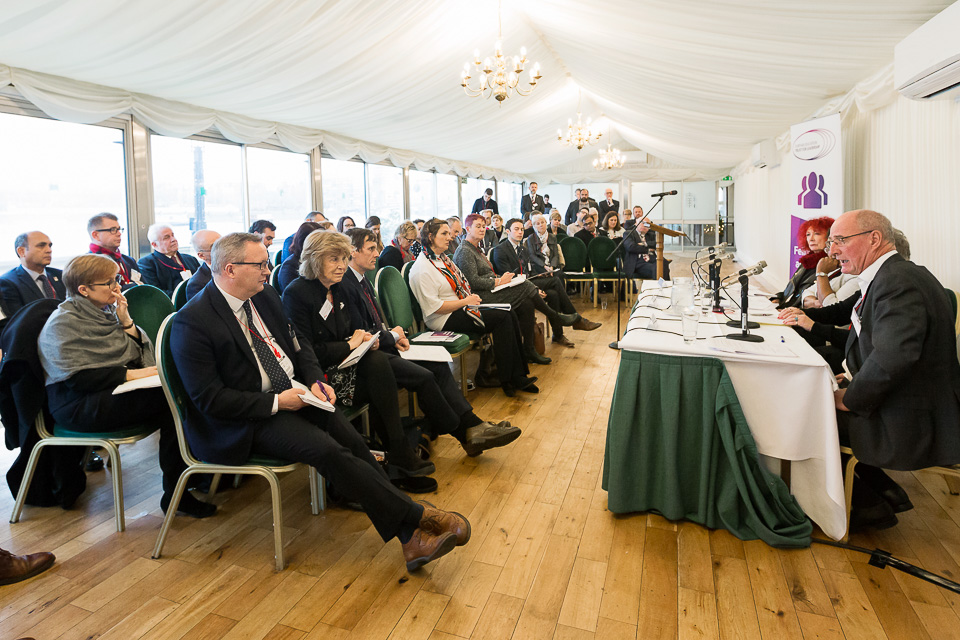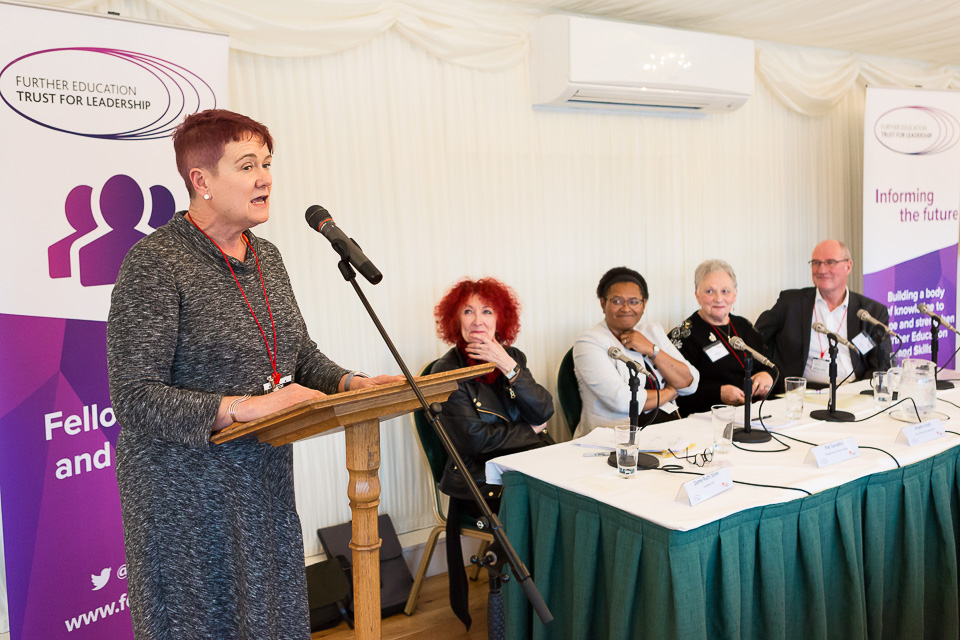
Leadership of thinking in times of change
Dame Ruth Silver reflects on FETL’s winter Symposium and the challenges facing further education leaders in 2018
Shortly before resigning as Education Secretary, Justine Greening launched a ‘plan for improving social mobility through education’. Where you start in life, she wrote in her foreword to the document, ‘all too often determines where you finish’ but this, she continued, is not something we should accept as inevitable. We can change it and education has a ‘vital role’ to play in making this happen.

This is absolutely right, of course, and Ms Greening’s ambition and heartfelt commitment to this issue is laudable. The plan, she writes, represents ‘a framework for action that can empower everyone – whether educators, government, business or civil society – to help transform equality of opportunity in this country’. And, indeed, it contains some good proposals and welcome recognition of the potential contribution of technical and further education to improving social mobility. But, as is often the case, the proposals are not nearly as radical as the ambition behind them, nor is their scope sufficiently wide to support the hope that we can ‘reverse these negative spirals and generate a virtuous cycle to unlock talent and fulfil potential’. And, despite recognition that FE and skills has often been ‘overlooked’ when it comes to funding, there is no new money for the sector either.
We need a much more joined-up and comprehensive plan if we are really to begin to address these issues. We need to think much harder about the place of further education in the education system, particularly in relation to higher education, and about how the tertiary system as a whole must change to address the challenges of social mobility and inequality of opportunity. And we have to be prepared to dispense with traditional ways of thinking about these problems and reshape the system so that opportunity is more evenly spread and the range of routes to a good career and decent life is as diverse as the aspirations of our people, particularly those living in ‘left behind’ communities.

The extent of these challenges, and their implications for leadership, was the main topic of the Further Education Trust for Leadership’s Winter Symposium in December. Ultimately, it falls on education leaders to make sense of such proposals and find ways in which to make them work. And while improving social mobility is a relatively new goal of government, as educators, we are and have always been about transforming the life chances of our students. It is at the heart of what we do. However, as Nic Dakin, Chair of the All-Party Parliamentary Group for Skills and Employment, told the symposium, funding cuts made this much more difficult, while constant reform puts pressure on leaders and managers and leaves staff struggling on stagnating pay, under the burden of an ever-increasing workload.
The area-based review process was in part a response to this funding situation. And while it was in some respects poorly and rather narrowly conceived, the process needs to be seen as an opportunity too; a way of deepening partnerships and improving the offer to students. In particular, it represents an opportunity to put place at the heart of the education agenda, something the social mobility action plan also, to an extent, attempts. While much of the focus of social mobility policy has been on expanding higher education access – and indeed the social mobility plan urges further expansion – this has done little to close the participation gap between advantaged and disadvantaged communities. And, while it has helped some, it has, over all, contributed to the feeling in many communities that they have, indeed, been left behind. In the emerging era of tertiary education, community and place will need to be much more central in our thinking, particularly if we are to address both the consequences of Brexit – which include the loss of our supply of educated labour from Europe – and its causes, which undoubtedly include the neglect and alienation of areas of the country which have not felt the benefits of globalisation.
As Pat Carvalho, Principal and Chief Executive of Harrow College and one of the symposium panellists, argued, the sector has no choice but to work in a different way, and with different partners. In an imperfect system, it was for the FE sector to ‘take hold’ of the skills agenda, she said. This was, among other things, a leadership challenge, as Angela Lloyd, Chair of Governors at Coleg Gwent, explained. Work supported by FETL had informed an overhaul of the governance structure at her college, she said, noting that while governors needed a wide skills set, they crucially also needed ‘passion, commitment and enthusiasm’. College leaders needed to work in greater partnership with governors, she continued, noting that this was often the spark for innovation in a college, as is had been for Coleg Gwent’s new technology strategy. Certainly, we need to talk and think more about the role of governance, almost certainly the least-scrutinised area of public life.

Alan Cave, Chief Executive of APM, reiterated the importance of sector leaders shaping the ‘public policy space’, noting that consultation with the sector had been going backwards in recent years. Good public policy, he argued, tended to be the result of ‘many brains being put to work on it’. Further education and skills training has the potential to help people change their circumstances for the better but the sector needed to better join-up the support it gave to ensure it had the most impact at the right time, with employer engagement solicited also at the right moment.
Symposium attendees gave some good examples of colleges which were already doing this, developing programmes that addressed social mobility by reflecting the specific needs of their localities, and tailoring their partnerships appropriately. But further change will be needed to ensure such efforts are replicated and have an impact nationally. As Robin Ghurbhurun, Principal of Richmond upon Thames College, observed, colleges can become ‘a force for change on social mobility’ but they need to get better at telling the world about this. In Scotland, where, as Russell Gunson, Director of IPPR Scotland, noted, colleges are more central to the social mobility debate, the creation of regional colleges has created more resilient colleges with better engagement with employers and other partners and a more learner-centred approach. The fact that Scotland’s colleges offer more higher education provision than their counterparts elsewhere in the UK also makes it easier for them to offer coherent solutions to local problems. However, in Scotland too, cuts to funding and poorly thought-out policy reform, has, to a degree, stifled progress, and lack of social mobility remains a huge issue north of the border.
We must be prepared to think differently, if we are to respond to these huge challenges and change the way people think about us. Several participants in the symposium felt that further education was constrained by a lack of identity and a low self-esteem. There is something in this, but I agree also with those who felt this was changing. There are many cases of colleges setting a fantastic example in planning provision which offers young people and adults in their communities a real chance of making a good life for themselves, whether they choose to move on to other things, or to remain in their localities and make things better there. We need to promote this and get better at learning from the best. We also need to see further, as we face new and unprecedented challenges, and move to occupy the space where we can have most impact. We should speak with greater authority. And we should expect to be listened to, not just about our own sector but about the wider tertiary system and, indeed, aspects of culture which perpetuate inequality of opportunity. We, after all, are the experts on social mobility and life chances, and we are the champions of place in education.
Dame Ruth Silver is President of the Further Education Trust for Leadership




















































































